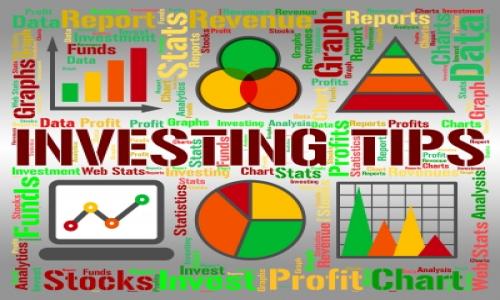Nouriel Roubini was right about the credit crisis when he called it in 2006 but wrong about the vigorous recovery in markets following the crash. Now, the man known as Dr. Doom for his grim predictions, says that bond vigilantes may come after the US in the next three years. What does this mean and how can you plan and profit from such an environment? Find out.
Roubini, for those that don't know, is an economist at New York University's Stern School of Business. He also runs his own economic consultancy. In September 2006, he warned to a skeptical IMF that: "The United States was likely to face a once-in-a-lifetime housing bust, an oil shock, sharply declining consumer confidence, and, ultimately, a deep recession" At the time he was derided and ignored. Now, many consider him a prophet.
Over the last two years, the economy has improved and stabilized more than Roubini predicted. He has remained glum even in the face of massive government bailouts and stimulus. To his credit, he predicted that sovereign debt, like that of Greece would become a problem in the future, and now it has.
Yesterday, at the London School of Economics, he said the following:
"Bond market vigilantes have already woken up in Greece, in Spain, in Portugal, in Ireland, in Iceland, and soon enough they could wake up in the U.K., in Japan, in the United States, if we keep on running very large fiscal deficits."
What does this mean? It means that investors will start to demand significantly higher yields to buy and hold government debt. Right now, investors are clamoring to buy US Treasuries, driving yields down to near historic lows. The United States is still viewed as a safe-haven for investors. But if US debt continues to grow, investors may reach a point where they will become concerned about the ability for the US to service and pay back its debt. At that point, interest rates will shoot up. For example the cost of Greek debt was over 10% during its debt crisis. Right now, a 10-year US Treasury note yields 3.38%. A rise to 10%+ would be catastrophic. But even an increase to 6-7% would have very negative consequences. They include:
- The cost to service US debt would almost double, further exacerbating the country's financial condition and create a negative feedback loop.
- Rates ties to US debt would increase. For example, mortgage rates are tied to the 10-year Treasury and they would be in the 8-9% range.
- Investors who purchased bonds at lower rates would see a huge loss on their investment. As rates rise, bond prices fall.
But simply cutting spending raises its own problems. Right now, the economy is being kept alive by massive government stimulus. Cut the spending and you'll slow the economy, which may actually widen the deficit. A growing, vibrant economy is the best way to outgrow debt. A poorly performing economy means more money must be spent on unemployment and tax revenue drops.
To me, it's clear from the chart that Treasury Bond yields have hit a low. They may go slightly lower but the future trend looks like it will most likely be up, rather than down.
Earlier, I compared our situation to Japan and argued that Japan's rates have stayed low despite decades of massive government debt and spending, Japan is a country of savers and they have an enormous pool of cash that can be used to finance their debt. The same is not true in the US. savings rates are abysmally low, leaving less cushion for debt financing. Plus, even Japan will eventually hit a wall.
It's also not correct to compare the US to Greece. Greece's situation has been worsened by its Euro membership. Because it does not have its own currency, it can't devalue it to help finance its debt. That would be the normal course of action for a country in their predicament. The US can devalue its currency although it appears that it's a race to the bottom with many developed countries. Almost all have debt problems as bad, if not worse than the US. One would therefore expect to see inflation as all of these countries try to inflate themselves out of there budget problems. It hasn't happened yet but that doesn't mean inflation won't increase in the future.
So, what's an investor to do? If you believe that bond vigilantes will catch up with the US, there are two options.
1) You can go short the Treasury market. The ProShares UltraShort 7-10 Year Treasury ETF (PST) seeks daily investment results that correspond to twice (200%) the inverse (opposite) of the daily performance of the Barclays Capital 7-10 Year U.S. Treasury Bond Index. For every dollar that Treasuries in the index go down, you would make $2. Of course, the inverse is also true, for every dollar Treasuries go up, you lose $2. ProShares also has a fund that tracks longer-term maturities, the Proshares Ultra Short 20 Yr Treasury (TBT) which is inverse 2x the performance of the 20 year index.
2. You can buy precious metals. Gold and other preciousmetal has surged on expectations that nation's will have to begin devaluing their currency. In such a case, precious metals are expected to hold their own or increase in value. Some ways to invest in precious metals are:
- Palladium - Physical Palladium Shares ETF (NYSE ARCA:PALL) was launched, with a platinum counterpart (NYSE ARCA:PPLT).
- Gold - SPDR Gold Trust (NYSE ARCA:GLD)
- Silver - iShares Silver Trust (NYSE ARCA:SLV).
Everbank also has an interesting way to invest in precious metals. It's called a Diversified Metals CD and it provides some of the upside of investing in precious metals without any risk of losing principle.
In terms of income genration, you have two options. The first is to invest in relatively strong, high yield dividend stocks. Stocks tend to do better in inflationary environments because companies can pass inflation on to their customers. In this way, inflation is often a net wash for stocks.
See a list of BestCashCow dividend stocks
You can also park your money in a high savings account or CD for the next 2-3 years and wait. If the bond vigilantes decide to attack the US, yields will rise dramatically and present an opportunity for investors to get some very attractive income streams. There is nothing wrong with waiting. As Sol Nasisi pointed out in this interesting analysis Analysis of Oil, Gold, Stock, and Deposit Returns Shows Capital Preservation is Key Strategy, earning a low return and keeping capital safe until market conditions are right to invest (keeping the powder dry) is actually a superior investment strategy.
My philosophy has always been to buy low and sell high. Right now, bond prices are awfully high (yields are very low). That in itself is reason for caution, regardless of whether or not Roubini is right and the vigilantes decide to make an appearance in the future.




Add your Comment
use your Google account
or use your BestCashCow account